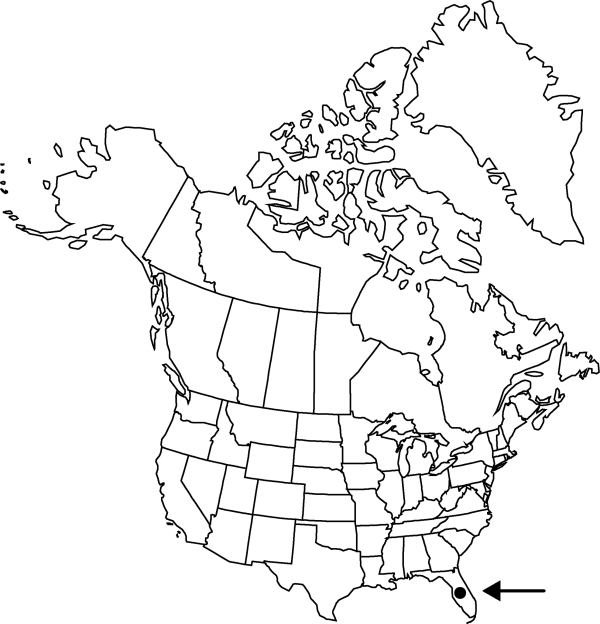Difference between revisions of "Pereskia grandifolia var. grandifolia"
FNA>Volume Importer |
FNA>Volume Importer |
(No difference)
| |
Revision as of 22:22, 16 December 2019
Shrubs or trees, erect, 2–10 m. Stems to 20 cm diam., very spiny; areoles to 12 mm diam. on basal portion of stem. Leaves elliptic-oblong, 6–30 × 3–9 cm, 0.5 mm thick. Spines all alike, 1–6 per areole, straight, acicular, 1–6.5 cm. Flowers 10–50 in dense cymose-paniculate aggregations, not fragrant, 1.5–3.2 × 3–7 cm; tepals epigynous; scales and areoles in distal 1/2 of receptacles; lateral pedicels 1–3 cm; terminal flower without pedicel; perianth pink. Fruits reddish green to yellowish green, pyriform or turbinate, often nearly as broad as long, 50–100 × 30–70 mm, often proliferating. Seeds obovoid-ellipsoid, 5–7 × (3.6–)4.5–5(–5.4) mm, glossy. 2n = 22.
Phenology: Flowering not reported for Florida [year-round].
Habitat: Lowland forests
Elevation: 0-50 m
Distribution

Fla., South America (Brazil).
Discussion
Pereskia grandifolia var. grandifolia is widespread in cultivation as an ornamental, often escaping. B. E. Leuenberger (1986) showed the species only as cultivated in Florida; however, it is reported from Highlands and Hillsborough counties, where it may now be established. At Hillsborough County, sizeable clumps were reported growing in a pasture (R. P. Wunderlin, pers. comm.).
Selected References
None.